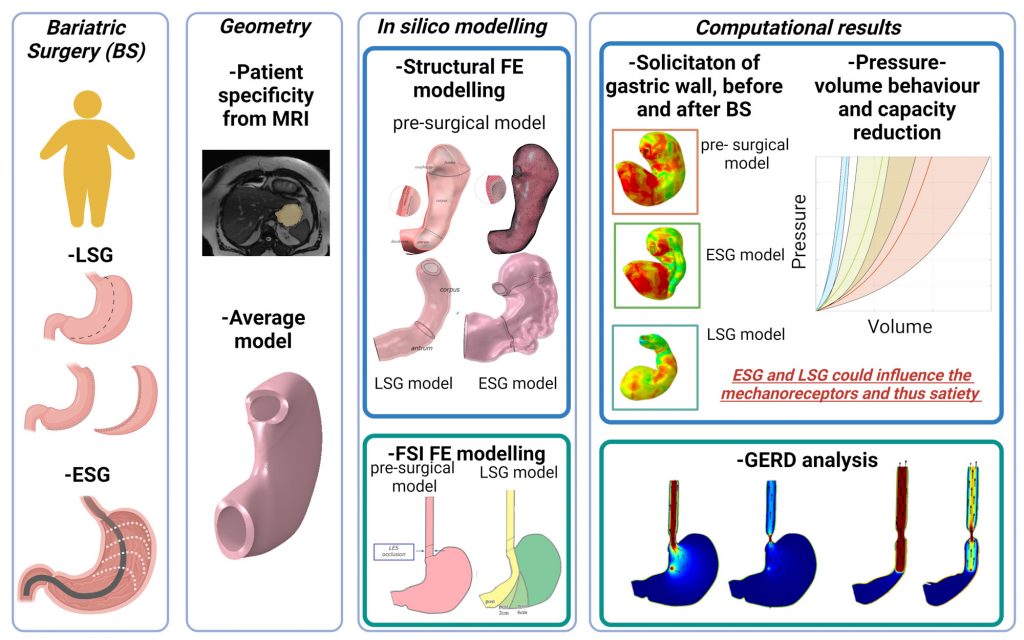
Obesity has emerged as a pervasive global health crisis. Bariatric Surgery (BS) stands out as the most potent therapeutic approach for weight reduction and enhancing both quality of life and associated medical conditions. Among the various procedures, Laparoscopic Sleeve Gastrectomy (LSG) ranks among the most widely practiced worldwide, despite the inherent risk of post-operative GastroEsophageal Reflux Disease (GERD) in patients. There’s ongoing exploration of novel techniques like Endoscopic Sleeve Gastroplasty (ESG), which represents a state-of-the-art surgical intervention. However, its long-term efficacy and success remain uncertain, necessitating further investigation.
While BS is presently employed to address obesity, there’s a notable absence of tailored and optimized procedures, leaving room for clinical refinement and the mitigation of lingering side effects.
Utilizing biomechanics as a computational clinical tool to assess the mechanical aspects of BS has emerged as a rational, reliable, and potent approach. In silico analysis provide the solicitation of the gastric wall, the pressure-volume behaviour of the stomach after food intake, the gastric volumetric reduction after BS, the simulation of several BS procedures in order to predict the mechanical effects (useful in surgical planning), also with a patient-specific geometry derived from pre-surgical magnetic resonance imaging.
The use of computational modelling can instil greater confidence in this surgical field, potentially encouraging more individuals affected by obesity to consider it as a viable option.
For more information contact:
Emanuele Luigi Carniel
phone: +39 049 8276876
e-mail: emanueleluigi.carniel@unipd.it
Ilaria Toniolo
e-mail: ilaria.toniolo@unipd.it
Alice Berardo
phone: +39 049 8276754
e-mail: alice.berardo@unipd.it